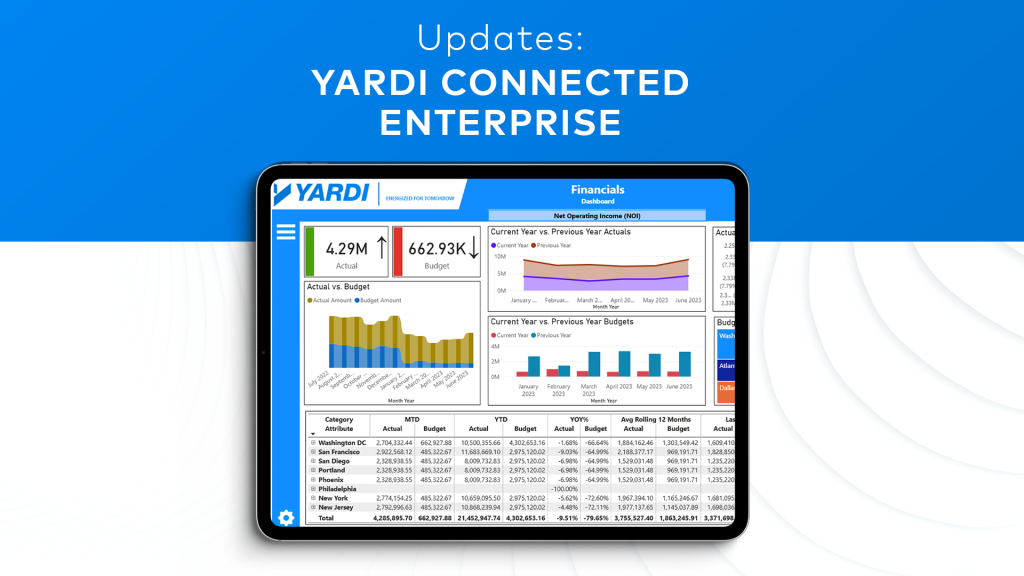By Erica Rascón on March 10, 2020 in News
There are several factors that can influence a change in a property’s performance. The economy and market conditions are often the largest influences that are beyond your control. Smaller and more controllable factors, like vendor selection, may influence your success as well. If you haven’t evaluated your vendors’ performance since striking the contracts, now is the time.
Complacency with vendors is bad business
It’s common to find reputable vendors and stick with them until a major event prompts you to reconsider. The result is that the quality of vendor services may slowly and subtly change without your awareness. As the quality of services degrade, it negatively affects your property’s performance.
Have resident complaints or dissatisfaction risen? Have you noticed units are harder to lease out? The overall maintenance of your site could be a contributing factor. Any work completed by vendors—landscaping, pool and site maintenance, turning and staging units, for example—are part of the prospects’ and residents’ experience. If vendor performance is underwhelming, your property suffers.
Ask the three simple question below to determine if your vendors are truly an asset to your business.
- Are your vendors organized?
Disorganized vendors rarely delivery top-notch services. A few common signs of disorganization include:
- arriving late to appointments
- delayed invoicing
- unclear and unspecific invoicing
- inconsistent performance or products
- and poor communication
If your vendor demonstrates more than one of these signs, it may be worthwhile to take a closer look at their performance and business practices.
Also, ensure that all licensing and insurance is updated each year. A lack of coverage is a risk to you and your customers. Besides, if they’re falling behind on essential documentation, what else are they overlooking?
Learn how VendorCafe empowers your business to reduce risk, gain efficiency, and enhance compliance.
- Are your vendors slacking on the job?
With some vendors, it can be difficult to tell if they’re offering exceptional service. Your expertise is management, not cleaning or landscaping. A kitchen that “looks clean enough” to you may not pass the discerning mom’s test–leaving your unit on the market. The landscaping that seems “fine” may not elicit the feelings of luxury that renters at your price point expect.
Even if you’re not an expert in all areas, there are tools to help you identify where vendors are slacking. Check out the helpful tips below.
Landscaping Pick up copies of Landscape Management, Landscape, fine Gardening, or similar magazines. They’re available at home supply stores and bookstores. Breeze through the pages to notice the latest trends and techniques. If your vendor is integrating the latest approaches, terrific! If not, have a conversation about the things that you’d like to see.
Cleaning Cleanliness is in the details. When a unit isn’t cleaned thoroughly, it can cause odors to linger. An overall dinginess may turn away prospects who can’t quite put their finger on what’s wrong.
To ensure that your cleaning vendor is giving each unit a deep clean, spot check the following:
- oven hood free of dust and grease
- dusted condenser coils on fridge
- interior of oven and dishwasher free of grime and stains
- tops of cabinets, refrigerator, and ceiling fans free of dust
- complete windows cleaning including glass, sill, and tracks
- swept and scrubbed baseboards, especially in high-humidity areas where dust tends to stick
- underneath appliances is dirt-free
Floors Natural materials, such as hardwood and stone, require specific care. Hardwoods that appear dull, blotchy, or swollen, are suffering from neglect. Stone flooring that appears dull, sticky, or slick are likely being cleaned with the wrong products. If your stone flooring stains easily, it could be that it was never properly sealed.
If you notice any of the above trends with your flooring, speak with your vendor about their techniques.
Staging and Design Poorly designed public spaces are easy to identify. It’s awkward to function in them and you find, quite inexplicably, that residents don’t take advantage of them. The abandoned game room or rarely used fitness room could lack key functional components. Poorly staged model units, however, may be trickier to identify.
If you don’t have an eye for design, that’s okay. First, focus on functionality. Do the rooms look bright and welcoming? If not, accent lighting (think floor lamps) may be needed. Can you comfortably walk through the space without changing the orientation of your body? If not, the furniture is too bulky or poorly arranged, which will make the unit appear small.
If you’re satisfied with the unit’s functionality, then turn to style. Like with landscaping, check out the latest print and online publications to see what’s hot. If your unit lacks pizazz, talk to your designer.
- Are your vendors continuing their education in the field?
Most real estate-related vendors have annual conferences, workshops, and continuing education course. These opportunities help professionals stay abreast of the latest industry developments and resources. Ask what your vendor is doing to stay on top of changes in the industry.


